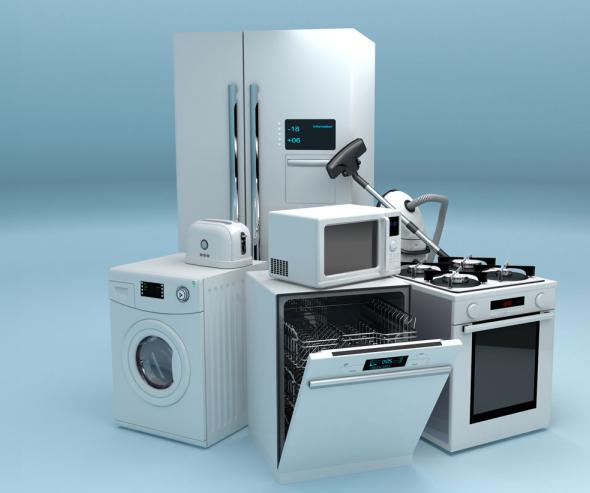The Autorité imposes fines of €611 million on 10 manufacturers and 2 distributors of household appliances for vertical price fixing

Background
The Autorité de la concurrence has imposed fines totalling €611 million on 12 vertical price agreements between manufacturers and distributors in the sector for the manufacture and sale of large and small household appliances. The agreements were implemented between February 2007 and December 2014, with the aim of keeping sales prices high, in particular in the face of emerging competing online distributors.
The companies sanctioned are BSH, Candy Hoover, Eberhardt, Electrolux, Whirlpool (as successor to Indesit), LG, Miele, SEB, Smeg, Whirlpool, Boulanger and Darty.
A decision supplementing the decision issued in 2018
The practices, which were brought to light thanks to evidence provided by the Directorate General for Competition Policy, Consumer Affairs and Fraud Control (DGCCRF), led to dawn raids in 2013 and 2014, with the companies of the BSH group submitting a leniency application in 2015.
In 2016, the Deputy General Rapporteur isolated part of the allegations relating to horizontal agreements, which were the subject of separate proceedings and led to a decision on 5 December 2018 imposing fines of €189 million on six companies.
Objective of the agreements: reduce competition, in particular from online distributors, and keep sales prices high for consumers
The ten manufacturers and two distributors concerned infringed competition rules by implementing vertical retail price-fixing practices. The manufacturers communicated retail prices to distributors and monitored their application, swiftly resorting to retaliatory measures (delaying and suspending deliveries, introducing exclusive sales systems, etc.) against any distributors that refused to apply the pricing instructions. The practices therefore eliminated intra-brand competition[1] at a time when online sales were growing, thereby preventing consumers from benefiting from more attractive prices for their purchases of small and large household appliances.
Total fines of €611 million
Ten of the 12 companies concerned did not contest the facts and therefore benefitted from the settlement procedure.
The practices, which reduced competition between distributors and kept prices artificially high for end consumers, are particularly serious. The Autorité has imposed fines totalling €611 million and has also ordered the parties to publish a summary of the decision in the paper and online editions of the newspapers “Le Monde” and “Les Echos”.
[1] Competition among distributors of the same brand.
The coexistence of vertical price-fixing agreements
The late 2000s was marked by the rise of online sales, in particular for small and large household appliances. In this context, ten manufacturers (BSH, Candy Hoover, Eberhardt, Electrolux, Indesit, LG, Miele, SEB, Smeg and Whirlpool) made individual agreements with their distributors – in particular the two largest, Darty and Boulanger – to keep sales prices artificially high.
In doing so, the manufacturers and their “traditional” distributors (selling primarily in brick and mortar stores) wanted to limit the emergence of websites selling household appliances at “knock-down” prices, while guaranteeing high margins for distributors active in traditional distribution channels, in particular stores.
- Implementation of selective distribution systems
Several online-only distributors, such as WebAchatFrance and Maismoinscher, testified that, as early as 2009, the manufacturers implemented selective distribution systems that, for example, required distributors to have “brick and mortar stores” or prohibited the sale of certain products over the internet. The products in question, which could therefore not be found online, were grouped together under the term “blacklist”.
- Communication of recommended sales prices
Several distributors reported a general desire on the part of manufacturers and suppliers to better control the retail prices of their products. The manufacturers, which knew that they did not have the right to control the resale prices of their products, used coded language to conceal pricing instructions. A “recommended” price was linked to all their products, which was understood by distributors as the price that had to be applied.
- Monitoring of the application of the communicated retail prices
The manufacturers and suppliers monitored, sometimes on a daily basis, whether distributors were applying the communicated resale prices for their products. To do so, they subscribed to online price data collection tools, thereby guaranteeing effective monitoring. In addition, the manufacturers and suppliers contacted their distributors directly – often verbally – to ask them to raise their resale prices. The aim was to reduce the difference between the prices charged by traditional distributors and those charged by online sellers as much as possible. According to several online distributors, the manufacturers sometimes resorted to physical meetings, as they were “wary of being recorded on the phone and didn’t trust e-mails”.
The constant pressure on distributors to apply the “recommended” prices was communicated by subtext: “if you want the product, you know what you have to do”; “there’s a new product coming out, if you want it...”.
The Autorité found that if the recommended resale prices were not applied, distributors could be subject to retaliatory measures, in various forms: deliveries suspended (or threats to suspend deliveries), sales of certain products blocked unless the instructed resale price was applied, etc.
- The role of Darty and Boulanger in the anticompetitive practices
The traditional distributors – including the two main companies, Darty and Boulanger – were fully involved in the agreements, essentially in order to “safeguard the value of their sales” by ensuring that the products sold in their stores were not significantly cheaper elsewhere, in particular online. They readily monitored their competitors and asked manufacturers to take action in the event of discrepancies. Darty and Boulanger even demanded compensation in the event of significant price differences: in order to match competitors’ prices without reducing their margins, they demanded a “margin offset” from manufacturers (in the form of a reduction in their net purchase price for the products concerned or for future purchases).
The distributors could have leveraged their influence to put an end to the anticompetitive practices. On the contrary, Darty and Boulanger not only applied the pricing instructions, thereby safeguarding their margins, but also exercised control over other distributors, readily informing the manufacturers of any distributors that were not applying the recommended prices. For example, during a sales negotiation with a manufacturer, Boulanger stressed the need to “agree on the positioning of the product”.
Several online distributors confirm the influence of the two traditional distributors and their influence on manufacturers’ behaviour: “the alignment policy was essentially linked to the commercial policy of Darty, which held more than 20% of the distribution market”.
Particularly serious practices that disadvantaged consumers and distributors
These widespread practices are particularly serious insofar as they were institutionalised, implemented covertly and involved a large proportion of the players active in the market. The Autorité underscores the fact that the parties used coded language, a sign that they were fully aware of the anticompetitive nature of their practices, in a context of rising online sales of household appliances, which should have enabled consumers to benefit from the lower distribution costs.
By preventing distributors of household appliances from selling their products at competitive prices, the sanctioned manufacturers and distributors disadvantaged consumers through their practices. Consumers were unable to take full advantage of a competitive market, and therefore could not benefit from the best prices.
Besides consumers, the practices directly impacted distributors when the latter deviated from the resale price policies imposed by a number of manufacturers and suppliers, limiting their capacity to offer attractive products to consumers. The practices helped to weaken the distribution sector, by reinforcing the influence of the main players in the market and, conversely, penalising certain distributors wanting to offer attractive prices, whose business was thwarted by the measures implemented by the manufacturers and suppliers.
According to the estimates of one distributor noted by the Autorité, the vast majority (around 95%) of distributors with an online presence at the start of the practices have disappeared or been taken over by the traditional distributors.
In total, the Autorité has imposed fines of €611 million
The Autorité has imposed fines totalling €611 million, divided between the 12 companies as shown in the table below. Furthermore, the Autorité has ordered the companies concerned to publish a summary of the decision in the print and online editions of the newspapers “Le Monde” and “Les Echos”.
| Company | Amount (in €) |
|---|---|
| BSH | 54,000,000 |
| Candy Hoover | 22,750,000 |
| Eberhardt | 100,000 |
| Electrolux | 44,500,000 |
| Whirlpool (as successor to Indesit) | 27,750,000 |
| LG | 15,500,000 |
| Miele | 14,250,000 |
| SEB | 189,500,000 |
| Smeg | 4,800,000 |
| Whirlpool | 44,500,000 |
| Boulanger | 84,350,000 |
| Darty | 109,000,000 |
| TOTAL | 611,000,000 |
Ten of the 12 sanctioned companies decided not to contest the objections and therefore benefited from the settlement procedure. Under the settlement procedure, companies that do not contest the facts receive a fine within a range proposed by the General Rapporteur and accepted by the parties. The companies of the SEB and Boulanger groups chose to contest the objections. In their case, the analysis conducted by the Autorité confirmed that the objections were well-founded, attesting to the fact that the entities actively participated in the anticompetitive practices.
Lastly, the Autorité has dismissed an objection concerning a potential horizontal agreement between the manufacturers. The manufacturers were accused of using a tool provided by their trade association to exchange individualised, recent data on sales volumes by category of small household appliance. The Autorité considered that the information exchanged was not strategic in this particular case, and that the exchanges had no effect on the autonomy of the participating companies.
Decision 24-D-11 of 19 December 2024
Contact(s)


